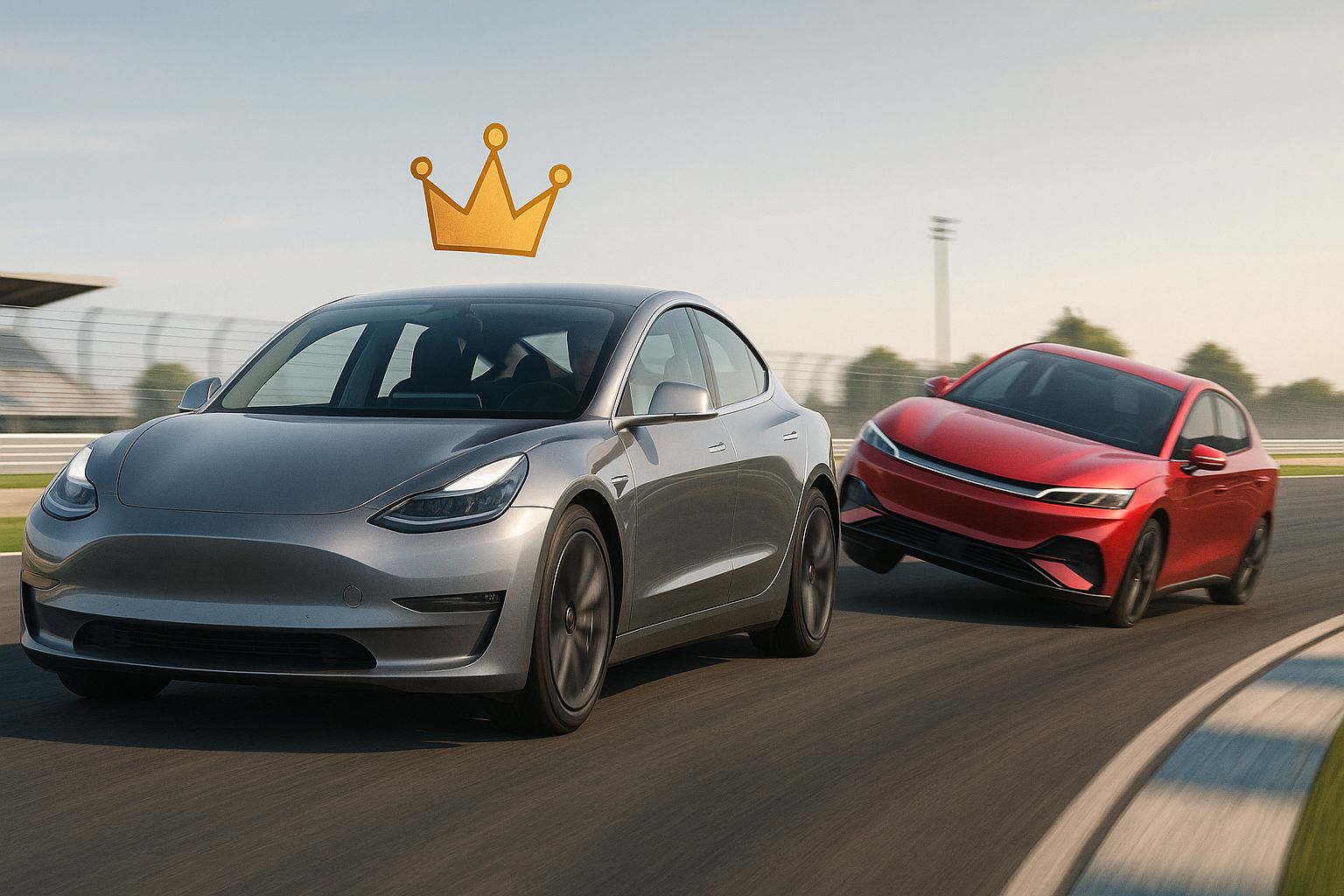BYD's stock took a nasty 6.4% hit yesterday after the Chinese electric vehicle giant reported a stomach-churning 30% drop in second-quarter profits. Meanwhile, Tesla—a company whose CEO has never met a victory he couldn't tweet about—quietly reclaimed the lead in adjusted net income.
I've been tracking the electric vehicle market for years now, and this particular reversal feels significant. Not just another quarterly blip, but possibly something more substantial.
Here's the thing about BYD's strategy: they've been playing the volume game hard. Real hard. The Warren Buffett-backed company (though even the Oracle of Omaha has been trimming his position lately—make of that what you will) slashed prices and ramped up production like there was no tomorrow. Great for grabbing market share. Not so great for, you know, actually making money.
It's Economics 101, really. In businesses with massive fixed costs—and automotive manufacturing is certainly that—volume is king. Until everyone chases volume at the same time. Then you've got yourself what Wall Street types delicately call "price competition" and what the rest of us recognize as a good old-fashioned bloodbath.
Tesla hasn't been immune to this dynamic. They've done their fair share of price cutting too. But Musk's company seems to have found steadier footing, balancing the dual identity of mass-market manufacturer and premium brand. Look, I'm not suggesting Elon planned this strategic masterstroke—this is, after all, the guy who named his vehicle lineup to spell "S3XY"—but it's working for them right now.
We can't ignore the broader context here. China's economy isn't exactly firing on all cylinders (electric or otherwise). Consumer confidence is shaky. The property market? Still circling the drain. And Beijing seems determined to stimulate everything except what might actually help.
(A quick aside—I visited Shanghai last fall and spoke with several EV dealers who were already worried about domestic demand softening. Those concerns have only intensified since.)
Then there's the international picture. BYD's ambitious global expansion plans are running smack into a wall of protectionism. The EU has slapped tariffs on Chinese EVs. America maintains its restrictions. Even developing markets are getting nervous about becoming dumping grounds for Chinese electric cars.
Tesla, meanwhile, has manufacturing facilities scattered across multiple continents—providing both tariff advantages and political cover. Smart move. Very smart.
What fascinates me most about this corporate drama is how perfectly it encapsulates the larger technological competition between the US and China. Electric vehicles aren't just cars; they're the physical manifestation of competing visions about energy independence, climate policy, and industrial strategy.
The market's reaction tells its own story. BYD's 30% profit nosedive triggered "only" a 6.4% stock drop—almost reasonable by today's hair-trigger standards. Investors had clearly priced in some trouble... just not quite this much trouble.
For anyone with money in the game (and I'm not your financial advisor—if I were, you'd probably want to find someone who doesn't write articles for a living), the lesson isn't necessarily to dump BYD and load up on Tesla. It's that the EV transition has entered its awkward teenage years. Growth is slowing, competition is fierce, and the economics of scale matter more than ever.
Both companies will probably be fine in the long run. They're giants for a reason. But this quarter gives us a glimpse of the road ahead—and it's got more twists and turns than the most optimistic investors expected.
The winners won't just be those with the coolest technology or the biggest factories. They'll be the ones who can pull off that most traditional of business achievements: turning a reliable profit.
